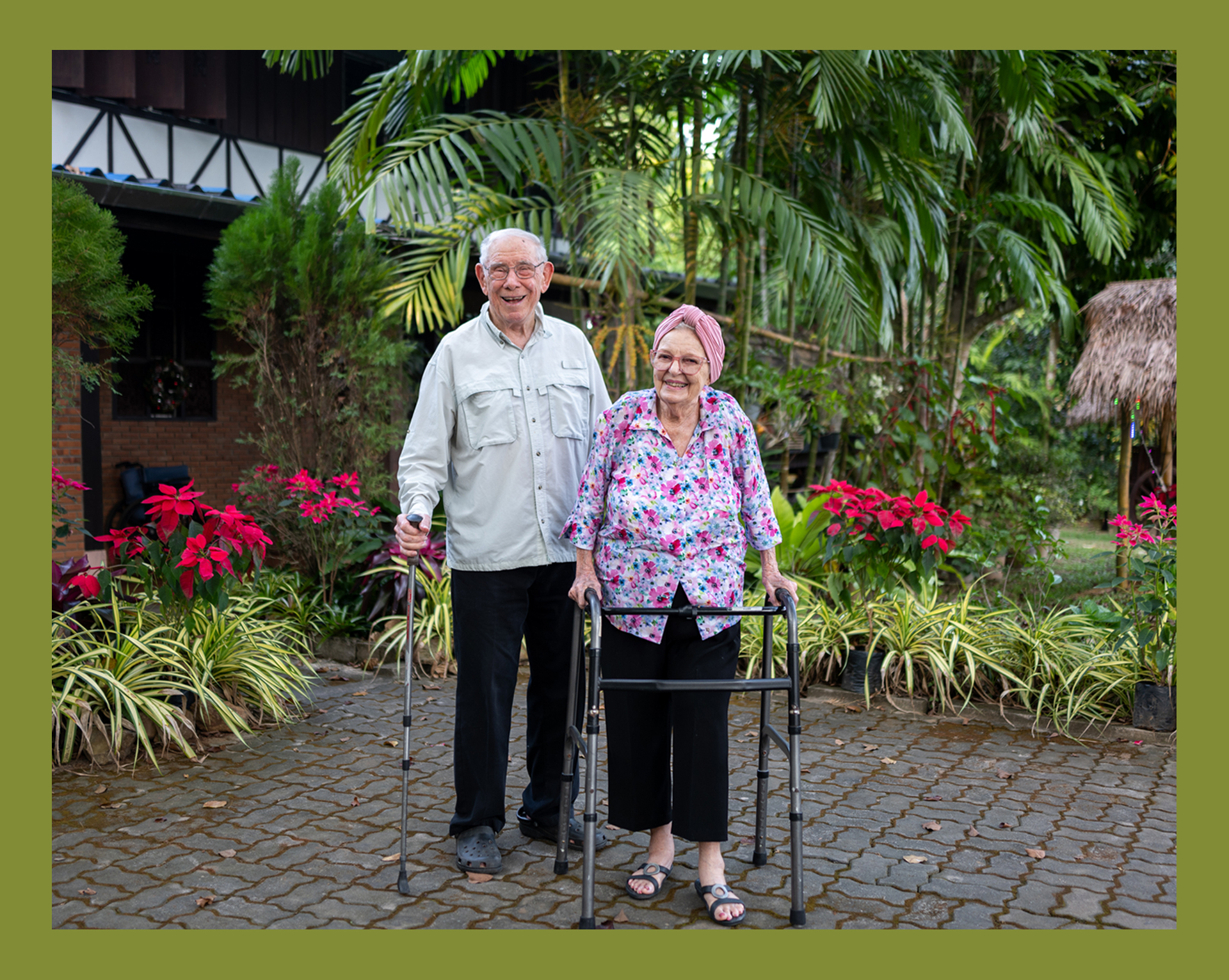The main road to the home of Allan and Joan Eubank runs through Maejo, a district of Chiang Mai that once brimmed with rice fields. Today, many of the watery fields have been built over with shops and gas stations. Nearing the house that Allan Eubank designed and built 30 years ago, there’s newer development too: basketball courts, a community center, and a church the Eubanks helped to start.
I arrive to mud underfoot in their unpaved driveway and rain pinging off the tin roof. It’s the wet season in northern Thailand, and the water is rising in a rice field visible just beyond the porch. Rain slushes off mango and banana trees in the yard.
“When we first came to Thailand, we had no hot water and no phone,” said Joan, who was 28 years old when she joined her husband on this mission field in 1961. “To call home to talk to my folks, I stood in line once a year at midnight and waited to reach them in Texas. I paid 80 baht for three minutes [about $4 at the time]. That was our only connection to home, besides returning to the States every four years.”
 Photo courtesy of the Eubank family
Photo courtesy of the Eubank familyAllan, who speaks in a deep marbly Texas accent, said, “It was a wild place then. Everyone had guns or knives and was ready to use them. But God was with us.”
Joan is 92 and Allan is 95. The couple have called Thailand home for almost 64 years. At the start, they seemed an unlikely pair to land on any mission field.
Joan Hovis left college her freshman year to join the United Service Organizations, which supports active-duty military personnel, as a singer. She eventually auditioned for Rodgers and Hammerstein, the composer-lyricist duo that revolutionized the American musical. She starred in numerous Broadway shows they created and in 1950s television shows.
 Photos by Todd Brown
Photos by Todd BrownJoan first met Allan at a USO show in Korea in 1953, where he was serving with the Army Corps of Engineers. “She had an aura of goodness,” he recalls.
After helping with the show, Allan wrote to Joan and followed her career. A geological engineer, he left the army after the war to join the Texas oil boom. It was a gold-rush time to work for Standard Oil, but Allan couldn’t shake a nagging call to the mission field.
Joan was living in New York by then, where she became friends with Julie Andrews and an understudy for Broadway star Barbara Cook. She traveled to London to perform in the West End production of the musical Plain and Fancy, then to Brussels to play the lead role in Rodgers and Hammerstein’s Carousel at the 1958 World’s Fair. She won the lead for the traveling Broadway hit Oklahoma!—which took her across the United States and to Fort Worth, Texas.
Joan says she was learning that it “wasn’t hard” to be a Christian in show business at that time, but she was “serving myself when I wanted to be serving others.”
By 1958, Allan had won acceptance by the Disciples of Christ mission board and enrolled at Brite Divinity School in Fort Worth, where he reconnected with Joan. When the Oklahoma! tour ended in 1959, they married. They had a son, David, the following year. In 1961, they set off for Thailand.
Now, more than six decades later, both missionaries retain vivid recall of those early times. They also can recount in detail the Thai people who would make up all their next chapters together.
As the rain slacks outside, we sit at a round table off their kitchen before large bowls of khao soi, a northern Thai curry noodle soup. Around us the walls are covered in photos and Thai art. Through open windows doves coo in the yard. As they talk, the Eubanks complete each other’s sentences. Allan acknowledges he talks too much and prompts Joan to share more of her own stories.
Joan had a stroke in November 2022 that affected her short-term memory and forced her to slow down. She uses a walker now. She works a soft toy in her hand to strengthen weak muscles, but her eyes still sparkle with warmth and interest in everyone at the table.
Joan will sing when asked—a classical, lyric soprano that can overcome a voice shaky with age. She’s also quick to correct Allan on details surrounding their early beginnings and the struggle to make Thailand their home.
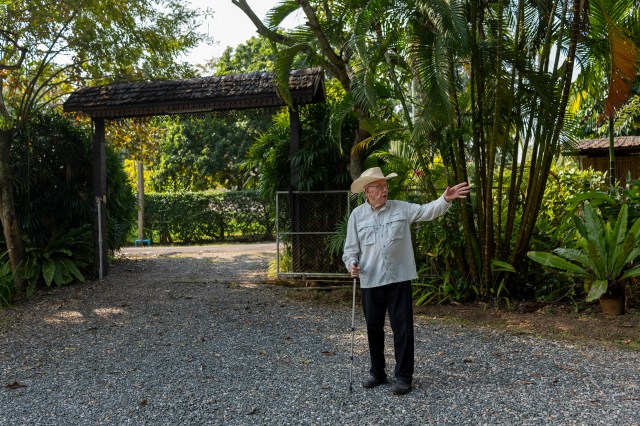 Photos by Todd Brown
Photos by Todd Brown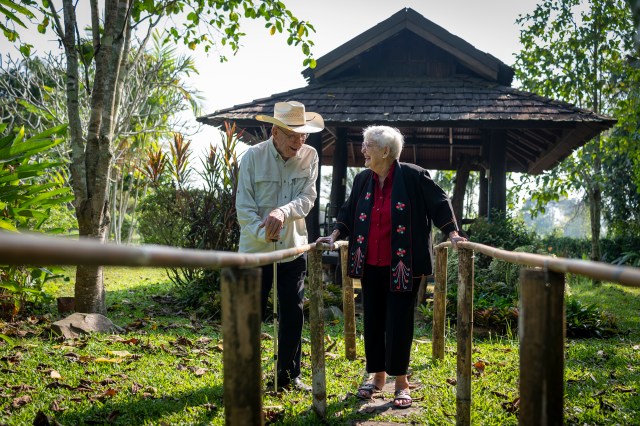 Photos by Todd Brown
Photos by Todd Brown Photos by Todd Brown
Photos by Todd Brown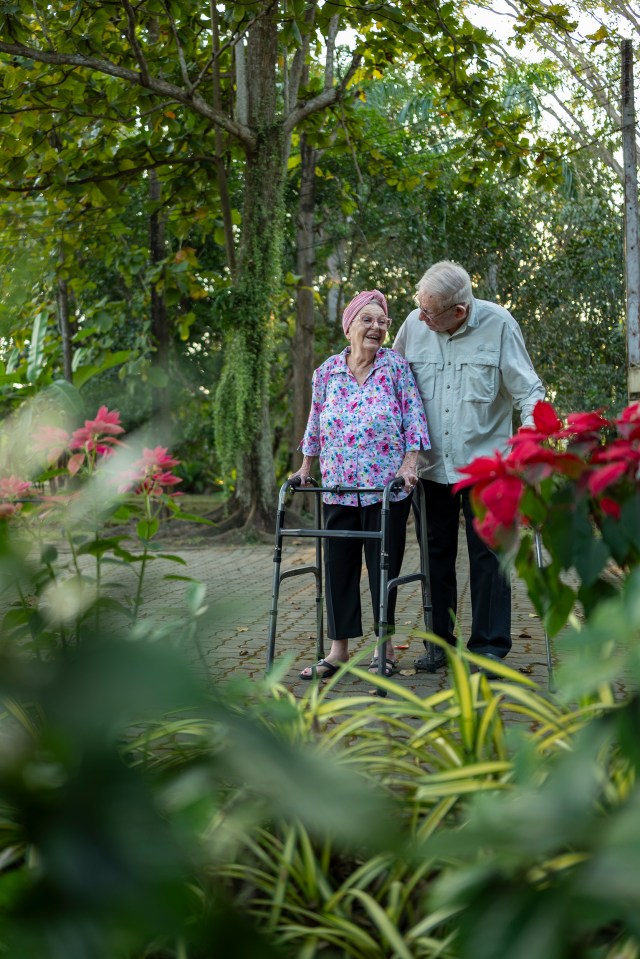 Photos by Todd Brown
Photos by Todd Brown Photos by Todd Brown
Photos by Todd BrownFollowing language training in Bangkok, the family (now including a daughter), moved in 1963 to the village of Sam Yaek, 50 miles from the capital.
“Bangkok was more cosmopolitan than I expected,” Joan says, “but when we got out in the country, we were 20 years without phones or hot water.” There were no schools or good roads. A generator provided electricity at night.
“We had help, we had community, Joan was teaching, and soon we had three children,” Allan said. They eventually had a fourth.
By then Allan already had made his first foray to the Burmese border in an effort to meet with the Talako, a remote sect of the Karen tribe that had not been reached by Christians. The team, which included a doctor, nurse, and local guides, had to cross three jungle-covered mountain ranges to reach the Talako chief at Laytongku village, a 21-day trip. They traveled by train, then up the Kwai River by boat. After resting the night at a mission hospital, the team rode elephants for 12 days to reach the village.
There would be more arduous expeditions year upon year, and times also when the missionaries were warned to stay away. It was 2008—decades later—before Allan first baptized a Talako man.
“They expected the white brethren to bring power and prosperity, but all we brought was Jesus,” Allan said.
“There were no churches in that whole border area,” Allan said. “Now there are twenty.”
Two years ago, when Allan was 93, he returned to help dedicate a pair of churches, one of which had more than 100 members and was in Laytongku.
The Eubanks crossed a long list of barriers. They helped bring Christian teaching to the Lao Song villages that surrounded Sam Yaek. (The Lao Song originated in Laos and Vietnam and held to a blend of animism and Buddhism and the worship of ancestral spirits.)
In the 1990s, Allan worked alongside his son David to further missionary work among the Wa people, another ancient people group living in areas of Burma and China bordering Thailand. The Wa were known as headhunters, opium producers, drug lords, and communists. But as conversions and churches increased, the Wa sought mission leaders like Allan to help establish schools, orphanages, and health care, and for help translating scripture.
With each breakthrough, the Eubanks say now, they underestimated the power of spiritual warfare and had to learn new ways to confront it. They are candid about facing their own temptations too. They would redouble their prayers against evil and work harder to get to know local people, especially those captive to spirit worship and idols. Sometimes they had to listen more and talk less.
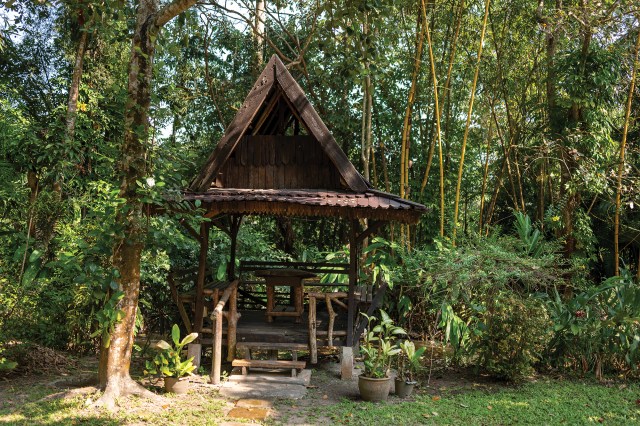 Photos by Todd Brown
Photos by Todd BrownAs they did, the Eubanks found many were weary of poverty, empty rituals, spirit houses, and shelves of carved images. They encountered people longing for lasting hope. Sometimes Allan simply laid his Bible on a shelf next to Buddhas or idols, he said, and that was enough to spark a conversation and curiosity about Christ.
“Our battle, like Ephesians 6, is not against flesh and blood. This I wasn’t taught in seminary,” he says.
In 1980, with Joan’s training in theater and growing cross-cultural experience, the Eubanks brought to life a new kind of dream: they started a Thai folk-dance troupe.
Some Christians opposed traditional dance and drama performances, called likay, because they drew on pagan traditions. But the Eubanks were determined to use Thai music and instruments in worship, and they saw a way to incorporate Christian themes and stories into likay—popular events that drew many Thais who would never attend church. The Eubanks consulted with music teachers at Payap University in Chiang Mai. Eventually, they partnered with the university to form the troupe. Its first dance was based on Psalm 150; later performances acted out parables.
The Thai Folk Drama Troupe was successful enough to go on international tour in the 1980s and 90s, visiting China, Japan, Singapore, Europe, and the United States. It performed at the White House in 1987, and in Manila at the Lausanne II Congress on world evangelization in 1989.
The Eubanks helped start the Thai Christian Foundation to accept donations to further the arts and fund local health, education, and development work.
Thailand’s Christian numbers remain low—only about 1.2 percent of the total population—but Allan still sees results from missionary efforts. “Even though there aren’t many Christians, I think Christian missions have changed Thai society,” he says. “We saw schools spread, and kids become teachers all over the rural areas, leading to more good work, roads and electricity.”
 Photos by Todd Brown
Photos by Todd BrownThe Eubanks’s work spread within their own family too. Son David founded Free Burma Rangers, an international humanitarian medic corps based in neighboring Burma (or Myanmar). Three daughters all are teachers: Ruthanne, a drama teacher in Kosovo; Laurie teaches in Japan; and Suwannee teaches art in Beijing. The couple have nine grandchildren and two great-grandchildren who are part Thai. Grandson Dave Dawson married Mint, a Thai from the Lahu and Wa tribes the family continues to work with.
It’s late afternoon and the two Burmese women who help Joan in the kitchen are serving us coffee and brownies with cream at her request. Both refugees, they want to tell me how they became Christians, and Joan translates. The women first learned about Christ in Burma, but it’s easy to see how they benefited from a long-standing network of missionaries across the region, generations of people like the Eubanks who took on spiritual warfare and faced down their own temptations in order to reach people groups who had never heard about Christ.
“The mission taught us: Don’t retire on the field,” Allan says. “But you immerse yourself in the culture and the language, and it becomes your life.”
When it came time to leave active service, the Eubanks received a call to a church in Texas. As they prepared to leave Thailand, Allan says he realized, “I heard the Lord call me to Thailand, but I never heard him call me home.”
Joan says she felt the same.
Instead of moving back to the United States, they retired from their mission agency and used their Thailand-based foundation to carry on their work, with others taking over much of the organization. They built their Chiang Mai home, and it became a hub for family, friends, and expat Christians.
Joan and Allan served on the mission field for 39 years and now have served in the same field as retirees for 25. “The joy of being here is that God can use us late in life,” Allan says.
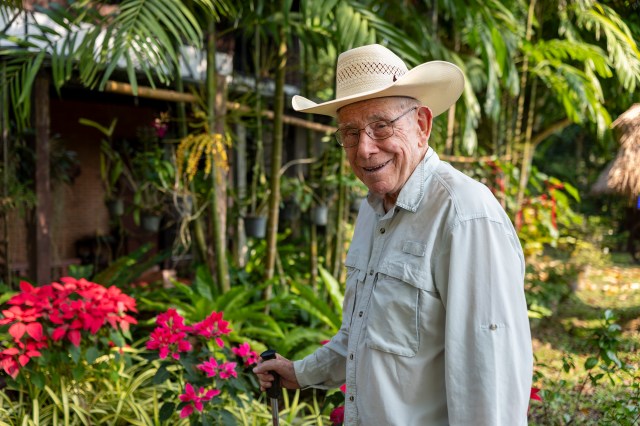 Photos by Todd Brown
Photos by Todd BrownThe couple no longer travels to the States. Everyone in the family is usually together in Chiang Mai for Christmas (and plans to be again in 2024).
Was there ever a time you wanted to give up? I ask as the afternoon darkens toward evening.
“Yes!” they both answer at the same time.
But Allan pauses as the rain beats down again outside, then says, “Staying on has helped us to learn that God can use weak and poor people like us.”
On any day they are surrounded by a community of fellow believers, members of their own family but also many Thai locals whom they’ve led to Christ. Allan has built other houses adjoining his property for some of them, with a church just down the road where they remain active. At a watering hole behind the house dubbed Jordan Pond, Allan says he and other church leaders have baptized 300 people over the years. When the rains let up, Allan has a ready list of more candidates for baptisms.
Mindy Belz is editor of the Globe Issue and is former senior editor at World magazine. She reported this story from Chiang Mai, Thailand.

